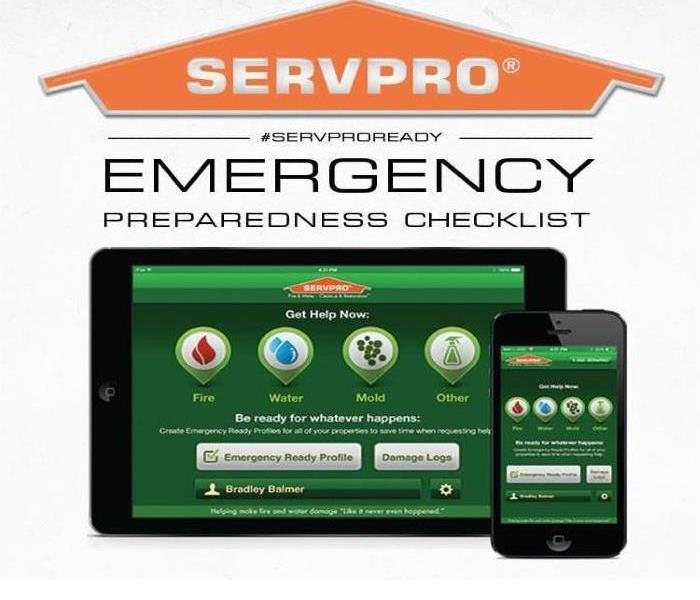Large Commercial Loss.... What do you do first?
9/10/2018 (Permalink)
 Having a plan before an emergency strikes allows you to be more likely bounce back. "Like it never even happened"
Having a plan before an emergency strikes allows you to be more likely bounce back. "Like it never even happened"
Did you know that SERVPRO team member and staff receive extensive training on commercial property losses? There are more moving pieces to a commercial property loss than a residential loss.
While the scope of the work is the same, remove the damaged materials, clean the affected areas, dry out the area. Many businesses have special requirements. Some need to stay open during the process. Others are dealing with food and or patient care. Certain businesses have sensitive documents that require specialty handling. Patient privacy and HIPPA regulations many times dictate who can handle their documents.
Immediate responses are essential to getting things back on track. Coordination with priority responders for gaining access to the facility. Scoping out the loss along with developing a plan. Communicating with IT services, plumbing, electrical and cubical management companies is pivotal. Ensuring that each moving piece of the business is coordinated.
Larger commercial projects require more resources, staffing, equipment and time. Major damage can result in significant business interruption. Everything from the entrance that employees use, where they park along with where they will be working. Has their equipment been damaged, document access been restricted or destroyed?
Commercial properties
Strategic containment barriers should be set up in multi-use buildings that allow the work to be done with out risk of cross contamination. Many times, multiple floors will have been affected in these large buildings. Working with property managers allow us to get into all floors quickly to ensure building safety through building stabilization, wall ceiling and floor demolition. Along with clear moisture mapping to ensure structural drying, all mechanicals and air systems can be cleaned as well.
Many businesses that maintain large file systems, such as lawyers, doctors’ offices, veterinarians, hospitals, tax accountants need special care with their documents. If they have not transitioned over to a scanning system, the documents will need to be salvaged. There are special freeze-drying chambers to accommodate such a process. Some of these some businesses handle special documents covered by HIPPA regulations or client/ patient confidentiality. Do those coming in to handle these personal documents have the proper certifications or security clearance to handle them?
Coordination is key when dealing with a large loss. Making sure all the appropriate connections ahead of time is essential to creating a seamless remediation process. Developing relationships with a variety of vendors before problems arise ensures that immediate response times are kept to a minimum. Just some of the vendors we build relationships with are temporary Labor, scaffolding, high lift equipment, document drying, ice house, moving companies, portable power, dumpster/waste companies, desiccant/ climate control, portable toilet services, dry cleaning, construction, emergency/ temp fencing, board up & roofing, IT services, fine art restoration, as well as temporary warehouse space.
The best way a business can recover from any disaster is to be prepared. Does someone in your company know where all the shut of valves are for your floor or the entire building? Where are essential electrical shut off locations? Where is the HVAC unit kept? What is the emergency evacuation plan for the building and where is your companies meeting place? Aside from emergency personnel who is the first person you should be contacting?
If even one of these questions cannot be answered you need to create an Emergency Ready Profile. Preparing you, your building, staff and tenants.





 24/7 Emergency Service
24/7 Emergency Service